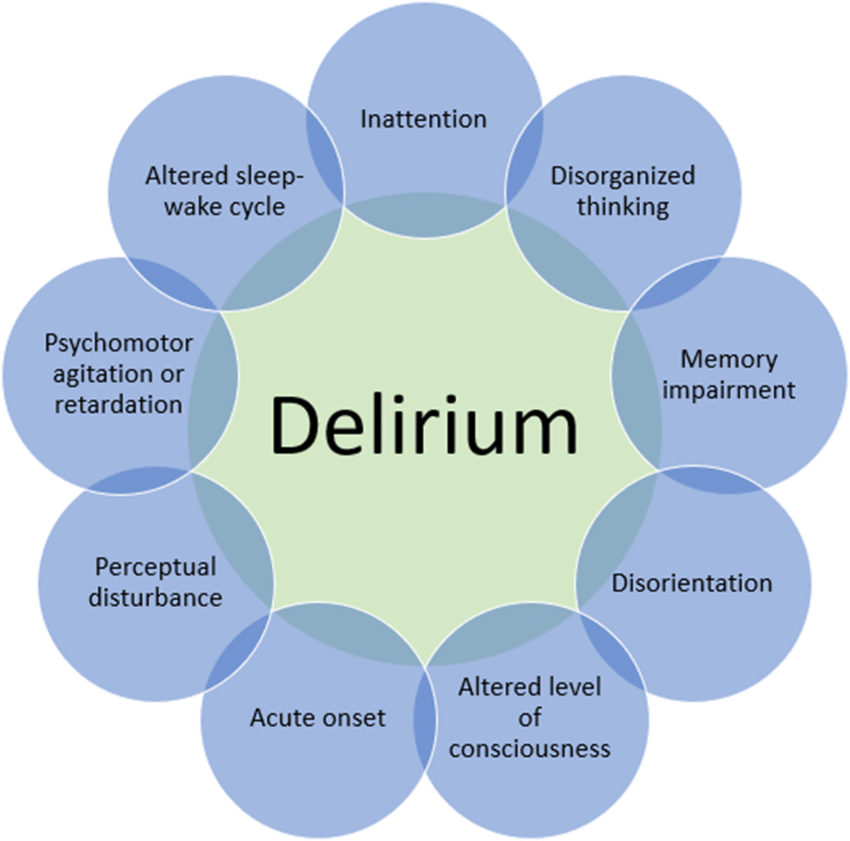Delirium
Delirium

An etiologically nonspecific syndrome characterized by concurrent disturbances of
consciousness and attention, perception, thinking, memory, psychomotor behaviour,
emotion, and the sleep-wake cycle. It may occur at any age but is most common after
the age of 60 years. There may be presence of:
(A) Impairment of consciousness and attention (on a continuum from clouding to coma; reduced ability to direct, focus, sustain, and shift attention);
(B) Global disturbance of cognition (perceptual distortions, illusions and hallucinations – most often visual; impairment of abstract thinking and comprehension, with
or without transient delusions, but typically with some degree of incoherence; impairment of immediate recall and of recent memory but with relatively intact remote memory; disorientation for time as well as, in more severe cases, for place and person);
(C) Psychomotor disturbances (hypo- or hyperactivity and unpredictable shifts from one to the other; increased reaction time; increased or decreased flow of speech enhanced startle reaction);
(D) Disturbance of the sleep-wake cycle (insomnia or, in severe cases, total sleep loss or reversal of the sleep-wake cycle; daytime drowsiness; nocturnal worsening of symptoms; disturbing dreams or nightmares, which may continue as hallucinations after awakening);
(E) Emotional disturbances, e.g. depression, anxiety or fear, irritability, euphoria, apathy, or wondering perplexity.

